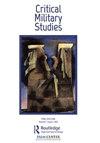富有弹性和创业精神的军人配偶:新自由主义化与军事化相遇
Q1 Arts and Humanities
引用次数: 4
摘要
摘要关于性别和军事化的女权主义学术揭示了军队如何在基本性别规范和剥削性性别关系的基础上依赖军人配偶的承诺和贡献。确保这些贡献和权力动态的战略会随着政治、社会和文化压力的变化而变化,如果要撤销这些贡献和动态,就需要对女权主义进行审问。因此,本文问道,加拿大军队是如何确保和利用军人配偶的劳动和忠诚来支持作战效能的?根据对配偶的原始采访数据以及对军人家庭支持倡议和计划的分析,我认为新自由主义逻辑正在与军事化相结合,以确保并加深国家对军人配偶的性别期望。通过个人责任、灵活性和足智多谋的新自由主义逻辑,军人配偶被告知,他们可以通过提高适应、生存和繁荣军事生活的能力来取得成功,并确保自己的幸福。这与其他军事化策略不同,后者呼吁爱国主义和对丈夫的忠诚。特别是,国家在韧性和创业精神方面的支持举措——新自由主义公民的素质——结合在一起,产生了一个理想的积极主动的军人配偶,她投资于自己的能力,以遵守军人生活的性别要求,并将此视为确保自己幸福的一种手段。当代军事化进程所依据的新自由主义逻辑鼓励并要求军人配偶创造条件,使他们能够更好地执行女性化的劳动实践,以支持加拿大武装部队。本文章由计算机程序翻译,如有差异,请以英文原文为准。
Resilient and entrepreneurial military spouses: neoliberalization meets militarization
ABSTRACT Feminist scholarship on gender and militarization reveals how militaries rely on the commitments and contributions of military spouses on the basis of essential gender norms and exploitative gender relations. Strategies to secure these contributions and power dynamics shift in response to political, social and cultural pressures and require feminist interrogation if they are to be undone. Thus, this paper asks, how is the Canadian military securing and exploiting the labour and loyalty of military spouses in support of operational effectiveness? Based on original interview data with spouses and an analysis of military family support initiatives and programmes, I argue that neoliberal logics are combining with militarization to secure and deepen the gendered expectations of military spouses by the state. Through neoliberal logics of individual responsibility, flexibility and resourcefulness, military spouses are told that they can be successful and assure their wellbeing by enhancing their ability to adapt, survive, and thrive military life. This differs from other strategies of militarization, which appeal to patriotism and devotion to one’s husband. In particular, state initiatives of support in resilience and entrepreneurialism – qualities of neoliberal citizenship – combine to generate as ideal the proactive military spouse, who invests in her capacity to adhere to the gendered requirement of military life, and sees this as a means to ensure her wellbeing. The neoliberal logics upon which contemporary processes of militarization are taking place encourage and require that military spouses create the conditions that enable them to better perform feminized practices of labour in support of the Canadian Armed Forces.
求助全文
通过发布文献求助,成功后即可免费获取论文全文。
去求助
来源期刊

Critical Military Studies
Arts and Humanities-History
CiteScore
1.90
自引率
0.00%
发文量
20
期刊介绍:
Critical Military Studies provides a rigorous, innovative platform for interdisciplinary debate on the operation of military power. It encourages the interrogation and destabilization of often taken-for-granted categories related to the military, militarism and militarization. It especially welcomes original thinking on contradictions and tensions central to the ways in which military institutions and military power work, how such tensions are reproduced within different societies and geopolitical arenas, and within and beyond academic discourse. Contributions on experiences of militarization among groups and individuals, and in hitherto underexplored, perhaps even seemingly ‘non-military’ settings are also encouraged. All submitted manuscripts are subject to initial appraisal by the Editor, and, if found suitable for further consideration, to double-blind peer review by independent, anonymous expert referees. The Journal also includes a non-peer reviewed section, Encounters, showcasing multidisciplinary forms of critique such as film and photography, and engaging with policy debates and activism.
 求助内容:
求助内容: 应助结果提醒方式:
应助结果提醒方式:


